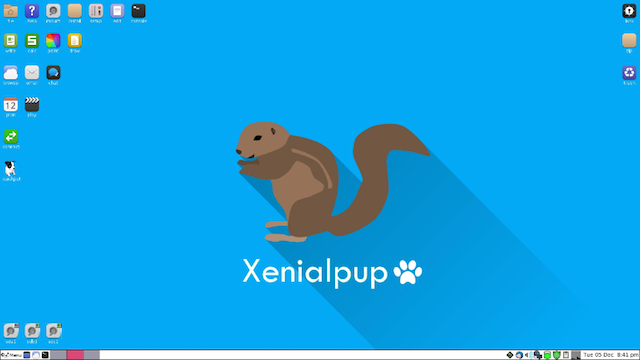
Puppylinux 7.5 'Xenialpup' is ready to breathe new life into your aging computer -- download it now!
Two of my favorite things are dogs and Linux. No, really. When I am not having fun with my Linux box, I am playing or cuddling with my dog. And so, whenever there is a way to mix these things, I am all for it. That's probably why Puppylinux is so endearing to me. Make no mistake, however, the operating system is much more than a cute name. Actually, it is a solid distro for breathing new life into ancient computers.
Today, Puppylinux 7.5 sees release. Named "Xenialpup," the ISO is an insanely small 330MB. Well, that is a diminutive operating system by today's standards at least. Heck, you can even burn it to a CD rather than a DVD -- very useful for an old PC without a DVD drive. You don't need to install it to the hard drive if you don't want -- it can be used as a live environment from optical disk, memory card, or flash drive. Despite its focus on being lightweight, it is still very capable too.

Vivaldi browser now available for Raspberry Pi and other ARM based Linux devices
Vivaldi, the new web browser from Jon S. von Tetzchner, the former co-founder of Opera, is already available for Windows, macOS and Linux (x86/x86_64), but from today you can now run it on ARM based Linux devices, including Raspberry Pi.
The speedy browser offers useful built-in functionality such as tab grouping, screenshot capture, and ability to take notes. Part of Vivaldi’s appeal is it’s highly customizable, and the experimental new build offers even more options for tinkerers.

You can win cool prizes just for trying System76's Ubuntu-based 'Pop!_OS' Linux distro!
There is this stereotype that Linux is not conducive to creativity, and I want you to know it is totally false. True, some photographers, videographers, and other types of artists may opt for a Mac or Windows machine, but they can be just as creative with open source and Linux. Not to mention, if you are a maker, engineer, or other type of creator, Linux is probably your best option.
The folks over at System76 have been preaching about the benefits of Linux and open source for many years, and its excellent Linux-powered computers are used by many creative professionals -- including Pixar. This year, however, the computer seller decided to take things a step further by creating its own Ubuntu-based operating system. Called "Pop!_OS," it aims to inspire its users. The company wants to get more people using the distro, so today, it announces a really cool new contest. By simply trying the operating system and sharing your experience with System76, you could win some sweet prizes, including a trip to the company's headquarters in Denver, CO!
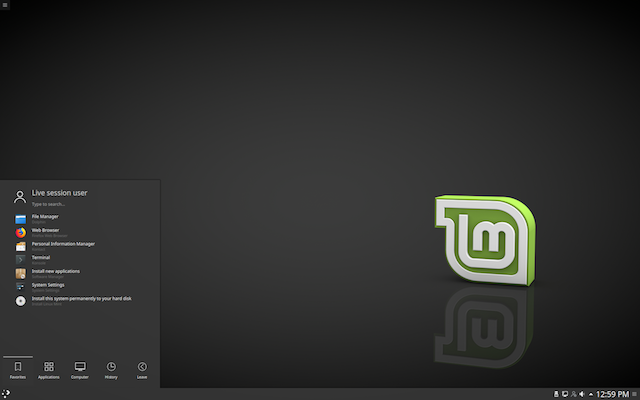
Linux Mint 18.3 'Sylvia' KDE and Xfce betas available for download, but don't bother
Linux Mint is a great operating system that I recommend highly. It is based on the rock-solid Ubuntu 16.04, meaning it is stable and compatible with many packages. For Windows converts in particular, Linux Mint with the Cinnamon desktop environment can be a very inviting first-time distribution that should offer a positive experience. The Mate DE variant is a solid choice too -- if your hardware is a bit anemic, that is.
Two desktop environments are probably the most that a Linux operating system should officially offer. Why? Too much choice can sometimes be bad, as it fragments the user experience and strains developer resources. Thankfully, the Linux Mint team seems to be seeing the light on this, as it will soon be ending the KDE version of the OS. There is still one final version of Mint that will offer KDE, however, and that is 18.3 Sylvia. Today, the beta version featuring that environment sees release.
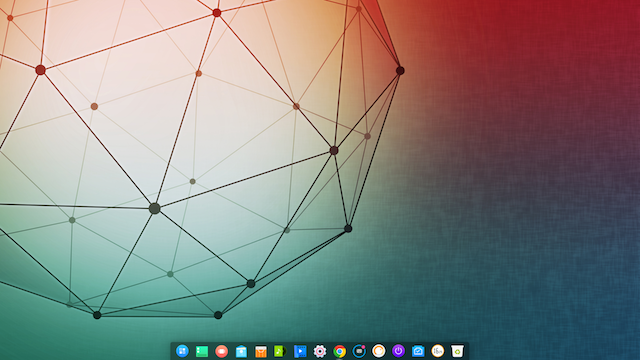
Want to switch from Apple macOS to Linux because of the 'root' security bug? Give deepin 15.5 a try!
Apple's macOS is a great operating system. Not only is it stable and beautifully designed, but it is very secure too. Well, usually it is. Unless you live under a rock, you definitely heard about the macOS High Sierra security bug that made the news over the last couple of days. In case you somehow are unaware, the bug essentially made it so anyone could log into any Mac running the latest version of the operating system.
Luckily, Apple has already patched the bug, and some people -- like me -- have forgiven the company. Understandably, not everyone will be as forgiving as me. Undoubtedly, there are Mac users that are ready to jump ship as a result of the embarrassing bug. While that is probably an overreaction, if you are set on trying an alternative operating system, you should not go with Windows 10. Instead, you should embrace Linux. In fact, rather serendipitously, a Linux distribution with a UI reminiscent of macOS gets a new version today. Called "deepin," version 15.5 of the distro is now ready to download.

Linux Mint 18.3 'Sylvia' is here -- replace Windows 10 with the Ubuntu-based operating system now!
Linux Mint is a great operating system. For those that want an alternative to Windows 10, it is a wonderful choice for two specific reasons. For one, it has a superior user interface. Whether you opt for the Cinnamon desktop environment or instead choose Mate, you will have a more intuitive experience than the insanity that is Windows 10. Secondly and more importantly, however, you don't have to worry about a billion dollar company tracking all of your activity. While telemetry sometimes has its benefits, Microsoft seems to have forgotten that their operating system is a guest on your computer. Again, it is your computer -- not the Windows-maker's.
Today, after a short beta period, the latest version of Linux Mint becomes available for download. Version 18.3, which is named "Sylvia," should undoubtedly be the best version ever. It is an evolutionary release that builds on its solid Ubuntu 16.04 LTS foundation. In other words, Sylvia should be extremely stable and reliable. Best of all, it is supported until 2021 -- this is very impressive. You can confidently install this on your or a family member's computer without worry about dropped support. The release uses Linux kernel 4.10 and comes with native Flatpak support.

Get a great deal on a Linux-powered System76 computer for Cyber Monday
Today is Cyber Monday, y’all! It’s basically Black Friday, but instead of shopping at brick and mortar retailers, you shop online instead. Oh yeah, it’s a Monday rather than a Friday too. For some people, today is the ultimate shopping day as you can score some amazing deals without leaving your house -- no savage fistfights at Walmart or Target.
Before you head over to Amazon or Newegg to score some new technology devices, can I make a suggestion? Consider a Linux-powered desktop or laptop from System76. These are computers that come with an Ubuntu-based operating system pre-installed. Today only, for Cyber Monday, the company is giving some rare discounts on most of its computers.

Linux Mint 18.3 'Sylvia' BETA is here
Back in September, we told you some interesting Linux Mint news -- version 18.3 would be named "Sylvia." That is hardly the most exciting recent Mint news, however. Actually, the bombshell that the operating system would be abandoning KDE was far more intriguing. While some people will mourn Linux Mint KDE, I certainly won't. Quite frankly, it should never have existed in the first place as it fragments the user experience, but I digress.
If you are a fan of Mint KDE, don't panic -- there is still one more release featuring the desktop environment. Yeah, the upcoming 18.3 "Sylvia" will have a KDE version. Today Linux Mint 18.3 BETA sees release, but it is only a Cinnamon and Mate affair -- for now. Unfortunately, the Mint team picked a bad day to release the beta as it will surely be overshadowed by the superior Fedora 27 which was released earlier today too.

Fedora 27 Linux distribution now available for download
If you want a pure, no-nonsense, Linux-based operating system, look no further than Fedora. It is stable as all hell, while also being fairly bleeding edge with up-to-date packages. Best of all, the distribution focuses heavily on open source ideology, using only truly free software. It is a great way to experience Linux as it should be. Hell, the father of the kernel, Linus Torvalds, uses Fedora -- that’s saying something.
Today, version 27 of the operating system finally becomes available. Desktop users should love the GNOME 3.26 desktop environment, which offers many improvements, including color emoji support. Yes, emojis do matter -- Linux users can have fun too. Also included is LibreOffice 5.4 -- a worthy alternative to Microsoft’s office suite. From a more technical aspect, some users will appreciate the addition of TRIM support for newly encrypted solid state drives.
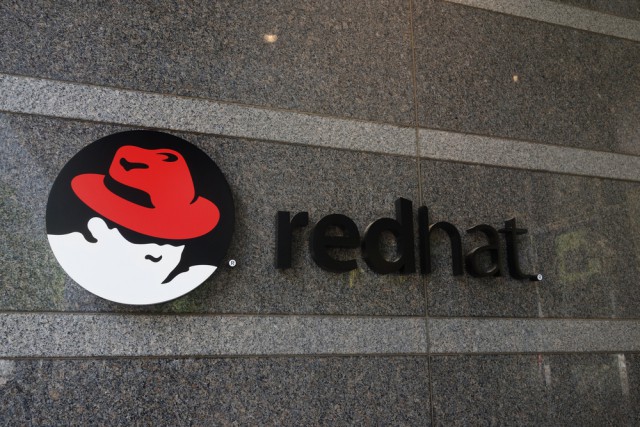
Red Hat Enterprise Linux gets ARM server support
While ARM has been slowly making inroads in the server market, it still has a long way to go before it can truly challenge the x86 architecture. Today, it makes a big step in the right direction thanks to Red Hat.
The enterprise open-source company has officially added ARM support to its Red Hat Enterprise Linux (also known as RHEL) server distribution, after two years of testing with partners like Qualcomm.
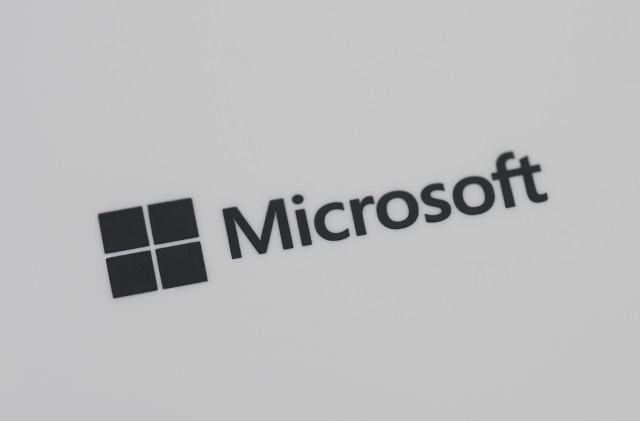
Microsoft brings Windows Defender Advanced Threat Protection to macOS, Linux, iOS, and Android
Microsoft has announced that it is teaming up with Bitdefender, Lookout, and Ziften to expand the reach of Windows Defender Advanced Threat Protection (ATP). By partnering with the three major security firms, Microsoft is set to bring ATP to macOS, Linux, iOS, and Android devices.
Bitdefender, Lookout, and Ziften will all feed threat detection information into one central resource, and this can then be used by security teams to keep an eye on all threats in a single location.

Ubuntu Linux-maker Canonical joins GNOME Foundation advisory board
Ubuntu is a great operating system, and this year it has gotten even better. Why? The maker of the distribution, Canonical, ditched the much-maligned Unity desktop environment. Instead, the latest version of the distro uses the far-better GNOME.
Not only does Ubuntu get better by using GNOME, but GNOME should improve thanks to Canonical’s contributions. Today, the GNOME Foundation Advisory board announces that Canonical has joined. This makes a lot of sense, as the company’s popular operating system should bring a renewed interest in the desktop environment. In other words, it is win/win for both.
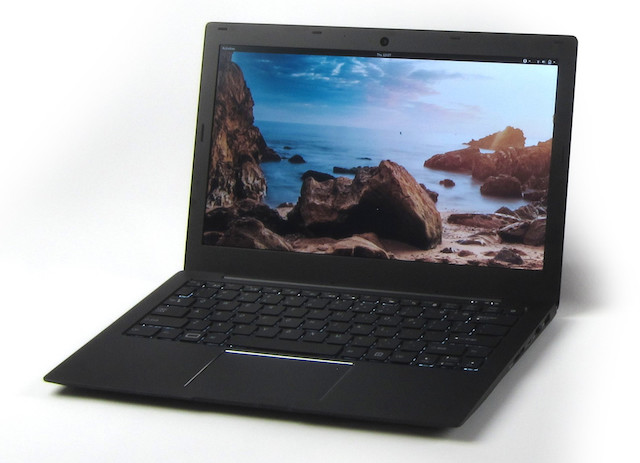
Purism Librem 13 v2 privacy-focused Linux laptop -- great hardware, frustrating software [Review]
As a computer user in 2017, privacy is always on my mind -- as it should be. I suppose I have always cared about securing my information and data, but in recent years, we have learned so many troubling things about government hackers -- including the USA -- that it seems more important than ever. Patriot Edward Snowden really shone a light on the unfortunate state of privacy, or lack thereof, in modern days.
This is why I was very intrigued by the Purism line of laptops. These are computers that are designed with privacy in mind. The Librem 13 v2, which I have been testing, features two hardware kill-switches -- one will cut the webcam and microphone, while the other kills the Wi-Fi and Bluetooth radios. By cutting access on the hardware level, hackers cannot access these things when switched off. Instead of using a traditional bios system for booting, it even leverages Coreboot. It runs a Linux-based operating system called "Pure OS" which aims to be very secure and private. Unfortunately, the OS ends up being a little too secure, and the weak link of the overall package. But does that really matter?

LibreELEC 8.2.0 Kodi-focused Linux distro is here, but Raspberry Pi versions are pulled
While many folks prefer to leverage legal streaming services like Netflix on hardware such as Apple TV and Roku nowadays, other people still prefer accessing locally stored media files. Is that concept dying? Yeah, but it will be a while before it is dead completely. Not to mention, music and movie pirates will keep locally stored downloaded media content alive for quite some time.
Don't get me wrong, not everyone that watches locally stored media files are pirates, but some certainly are. Whether you are accessing downloaded media or streaming content using an addon, the Kodi media center is a great way to experience it. Taking it a step further, a Linux-based operating system that exists just to serve Kodi is even better. Today, one of the best such distros, LibreELEC, gets a major update to version 8.2.0.

SUSE Linux Enterprise 15 Beta 1 open source operating system available for download
Linux powers the most popular mobile operating system, Android. It is also what many of the world's servers run. Despite this, people still think Linux is merely a hobby or niche project -- sorry, folks, it isn't. Even Microsoft has seen the light regarding Linux -- Bill Gates runs Android and the Windows Store hosts popular Linux distributions.
True, Linux does not have significant market share on consumer desktops, but it is extremely important to the enterprise. This is why Red Hat Inc is so successful with its Red Hat Enterprise Linux operating system. RHEL isn't the only game in town, however; SUSE Linux Enterprise is a viable alternative for servers, workstations, and more. Today, version 15 of the operating system gets its first beta, and you can begin testing it immediately.
